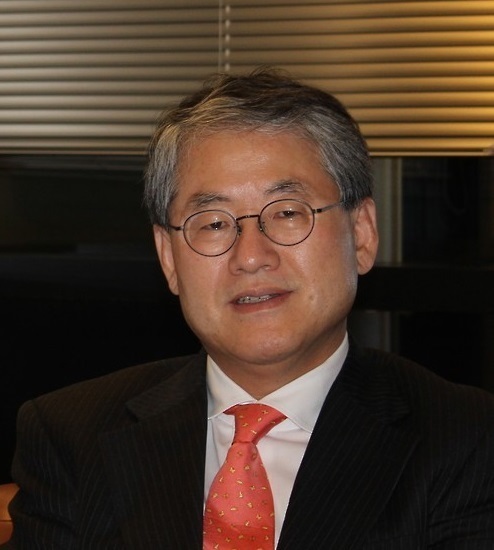In 2016, South Korea will take the helm of nine international organizations including the U.N. Human Rights Council, underscoring the country’s enhanced diplomatic stature on the world stage.
In particular, Korea will take some leading U.N. posts in the areas of peace and security, development and human rights ― the three principal areas that the international organization has been focusing on, Seoul officials said.
 |
U.N. Economic and Social Council President Oh Joon |
Since July 2015, Oh Joon, Seoul’s ambassador to the U.N., has led the Economic and Social Council, a major U.N. body in charge of economic, social and development-related issues. His term is one year.
In December, South Korea was elected to chair the Human Rights Council for 2016. It will be the first time the country has led an international body handling human rights issues. Ambassador Choi Kyong-lim, who heads Seoul’s permanent mission in Geneva, Switzerland, will chair the HRC.
Also in 2016, Korea will lead the International Conference on Nuclear Security, hosted by the U.N. nuclear watchdog, the International Atomic Energy Agency. From 2016, Korea will hold the chairmanships for the Nuclear Suppliers Group and Missile Technology Control Regime for two years.
 |
U.N. Human Rights Council President Choi Kyong-lim |
In 2016, Korea will continue to lead the U.N. Conference of State Parties to the Convention on the Rights of Persons with Disabilities; the U.N. International Panel on Climate Change; and the Financial Action Task Force on Money Laundering. The FATF is under the Organization for Economic Cooperation and Development.
Another organization Korea will chair in 2016 is the Multilateral Organization Performance Assessment Network, a group of 19 donor countries designed to assess the organizational effectiveness of the multilateral organizations they fund.
Seoul officials said Korea’s chairmanships of these international organizations would help enhance the country’s international standing, particularly in the process of creating new international regimes and orders.
“Given the enormous influence chiefs of international organizations have in terms of setting the agendas and other aspects, (Korea’s chairmanship) will greatly help enhance the country’s stature (on the world stage),” Seoul’s Foreign Minister Yun Byung-se said in his media column.
Apart from the country’s chairmanship, there were several South Korean individuals leading international organizations.
Ban Ki-moon, a former South Korean foreign minister, is the U.N. secretary-general. Lim Ki-tack, president of the Busan Port Authority, has been elected to lead the International Maritime Organization from 2016-20.
By Song Sang-ho
(
sshluck@heraldcorp.com)









